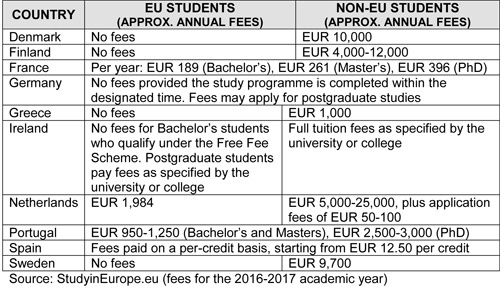As ‘globalisation’ cements itself as the buzzword of the 21st century, educators work towards producing students who are competitive in an international economy, while also instilling awareness and empathy of other countries, cultures, and issues of common concern across the planet. However, there are many who insist that, for developing a true sense of global consciousness, nothing beats studying abroad.
Concerned about regional political and economic instability, South African parents are particularly keen to see their kids spread their wings transnationally, says Nigel Barnes, Managing Partner at residence- and citizenship-planning consultancy Henley & Partners. “In fact, securing their families’ futures is the main reason clients give for employing our services,” he notes. “Most look to the UK and EU for tertiary study opportunities, with the States and Canada coming in a close second.”
Why is the UK’s education system so highly rated?
According to the British Council, the UK is home to over 400,000 international higher education students each year, and it’s easy to see why. Sitting at the top of the world rankings (four of the world’s 10 best universities are located in the country, according to the QS World University Rankings for 2017), UK universities have a reputation for developing the skills that employers are seeking – for university-industry collaboration, the country ranks in the top five globally.
The UK is also the world leader in quality research, having overtaken the US to rank first by field-weighted citation impact (an indicator of research quality). Of course, it doesn’t hurt that university fees are also generally lower than those of Australia and the USA.
What about Brexit?
There has been concern among students and academics alike over the potential impact that the decision to leave the European Union will have on the future of higher education in the UK, particularly insofar as funding, exchange programmes and quality of teaching and research collaboration is concerned. “UK universities receive an additional 15% in funding from the EU and some believe this may now be at risk,” says Barnes. “A change in visa requirements for other European countries could also deter high-calibre academics from joining British universities.”
On the other hand, when it comes to educational facilities in the EU, students are spoilt for choice. Five of the 10 best countries in the world for education are EU member states, according to the 2016 US News & World Report.
With scores based on three equally weighted attributes (top quality universities, a well-developed education system, and consideration for attending university in that country), Germany is positioned fourth in the rankings, France fifth, Sweden seventh, Denmark ninth, and the Netherlands 10th. “Most of these countries place an important emphasis on government spending for education,” explains Barnes. “They all provide free primary and secondary education and the majority offer free tertiary education for nationals as well as EU students.”
How does it work?
Student visas take anywhere from one week (for the UK) to four months (for Canada) to process, but of course, students need to wait until they have an offer from a university before applying. “For those submitting applications to universities that we represent, this generally takes between five and 10 days, depending on the course chosen,” says Liza Manoussis, Managing Director of Global Education, an independent agency that assists South African students to apply for study at over 150 universities around the world.
While entry requirements vary from one university to the next, students will generally need at least a C-aggregate matriculation certificate. “There is an option at some universities to do a foundation or first-year pathway programme, where students attend class on campus and receive one-on-one tutoring with their lecturers. On completion of the programme, they then enter the university as first years,” explains Manoussis.
What price a global education?
Parents be warned: Foreign study fees are not for the fainthearted, and funding is few and far between. “Some universities may provide partial scholarships of, say, USD 1,000 to USD 5,000 off fees, but they seldom offer full scholarships and students are required to pay the majority of fees when they apply,” says Manoussis.
According to Barnes, one of the main advantages of acquiring EU citizenship through investment is not necessarily a reduction in tuition costs (“in order to qualify for ‘home’ fees, most countries require students to have been resident there for a number of years before starting their studies anyway”), but the ability to stay on and work in Europe after graduating.
“Malta, for instance, offers the top-ranked investment migration programme in the world and Maltese citizenship confers the right to live, work and study in all 28 EU countries, as well as Switzerland,” he explains. “The application may include dependent children up to the age of 26, and citizenship is transferrable by descent.”
For those who have their sights set on an American education, the citizenship-by-investment programme of Grenada opens a possible door into the US. “The Caribbean country holds an E-2 Investor Visa treaty with the US, granting citizens eligibility for a US non-immigrant visa,” he says, adding that Grenadian citizenship can be acquired for between USD 200,000 (a non-refundable contribution) and USD 350,000 (a property investment). “The children of those successfully acquiring the Treaty visa may then attend the school of their choice in the US, and, in many states, the university too.”
He adds that Grenada itself boasts the world-class St George’s University, a private institution offering degrees in medicine, veterinary medicine, arts and sciences, and business. “Home to students from 140 countries, St George’s is a recognised leader in US Medical Licensing Exams, with its medical faculty consistently outperforming those in even the US and Canada.”
Tuition fees at EU public universities

Have you thought about letting your kids study abroad? What are your reasons for or against this trend? Send your thoughts to chatback@parent24.com and we could publish them.




 Publications
Publications
 Partners
Partners










